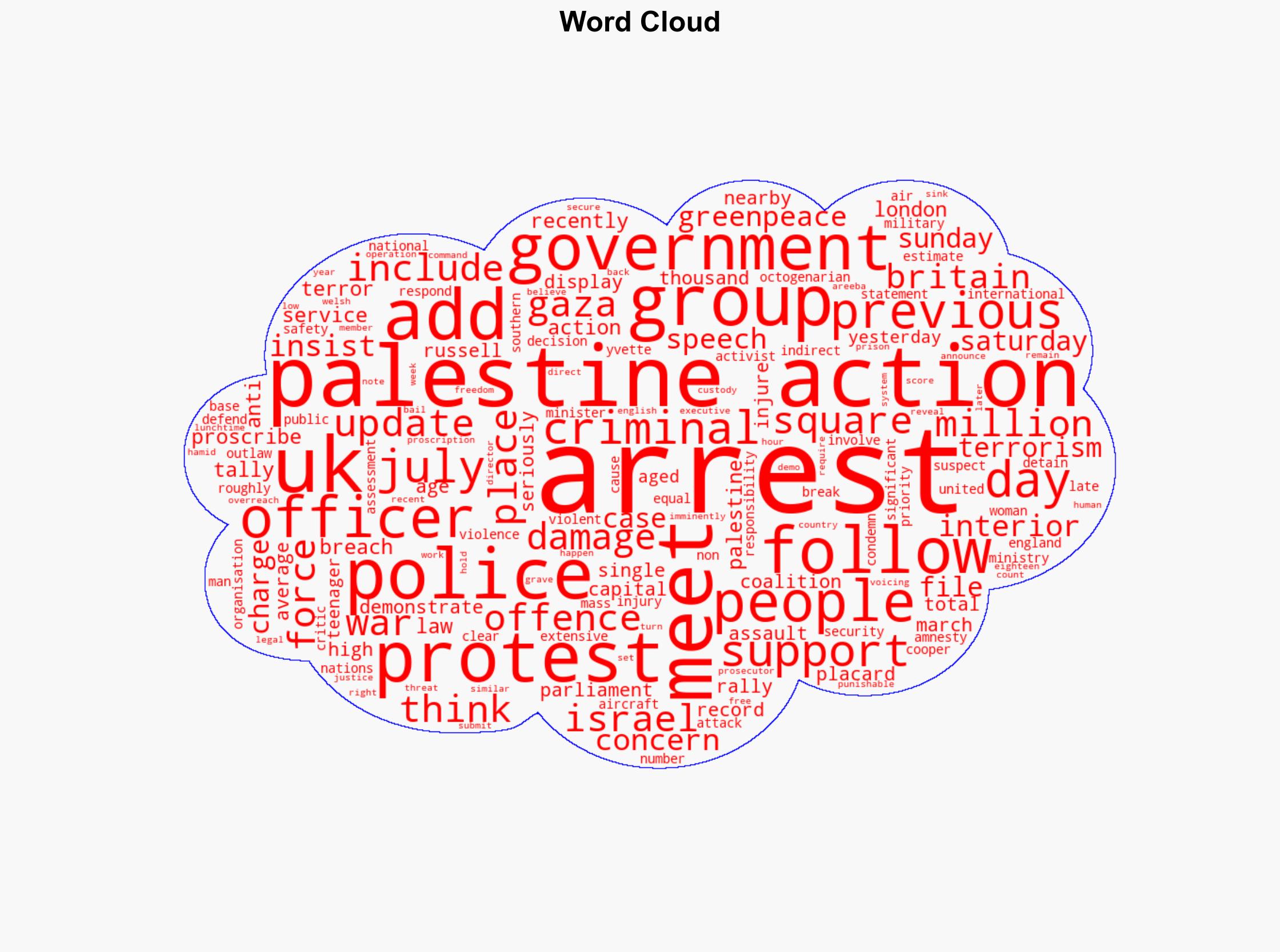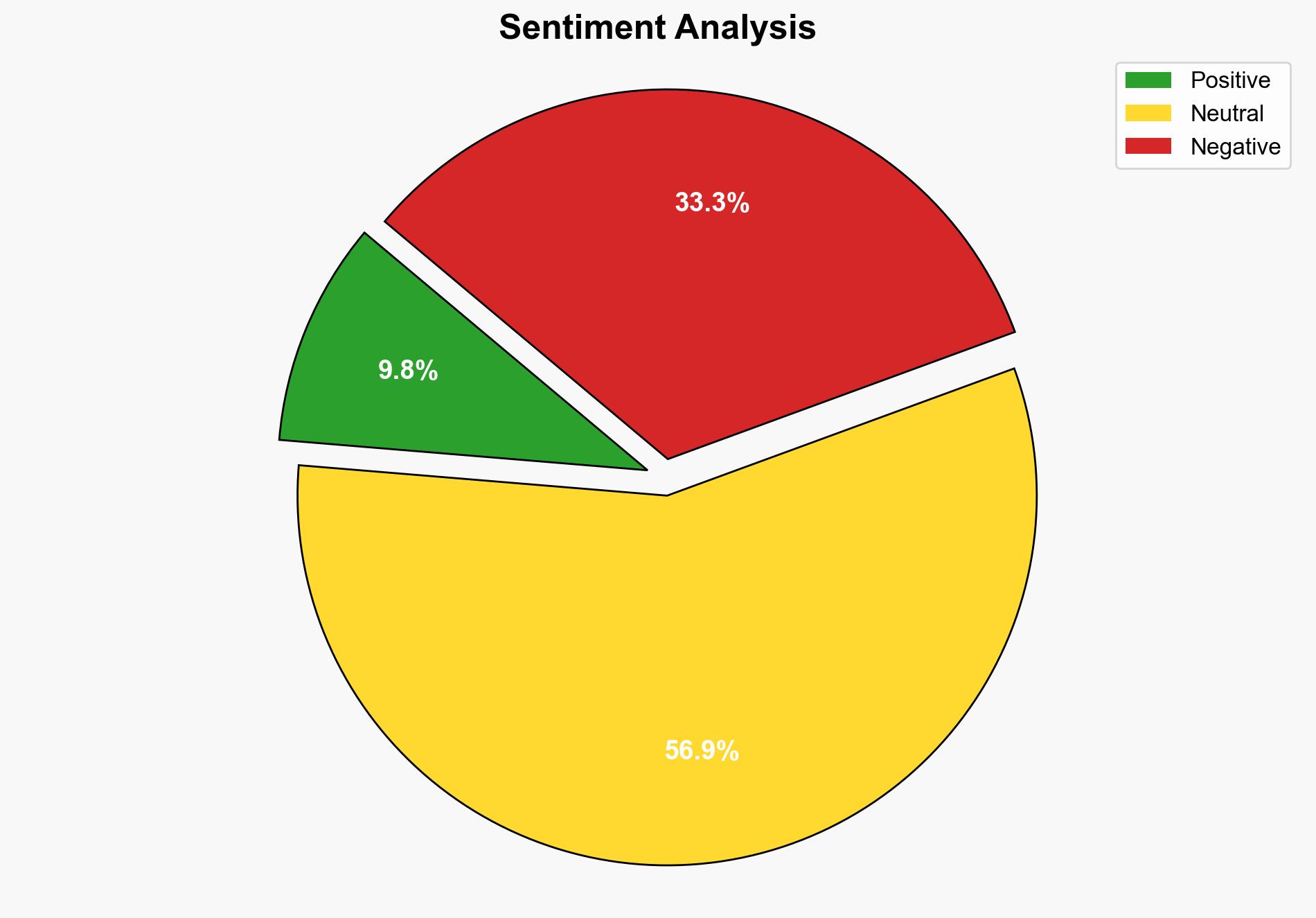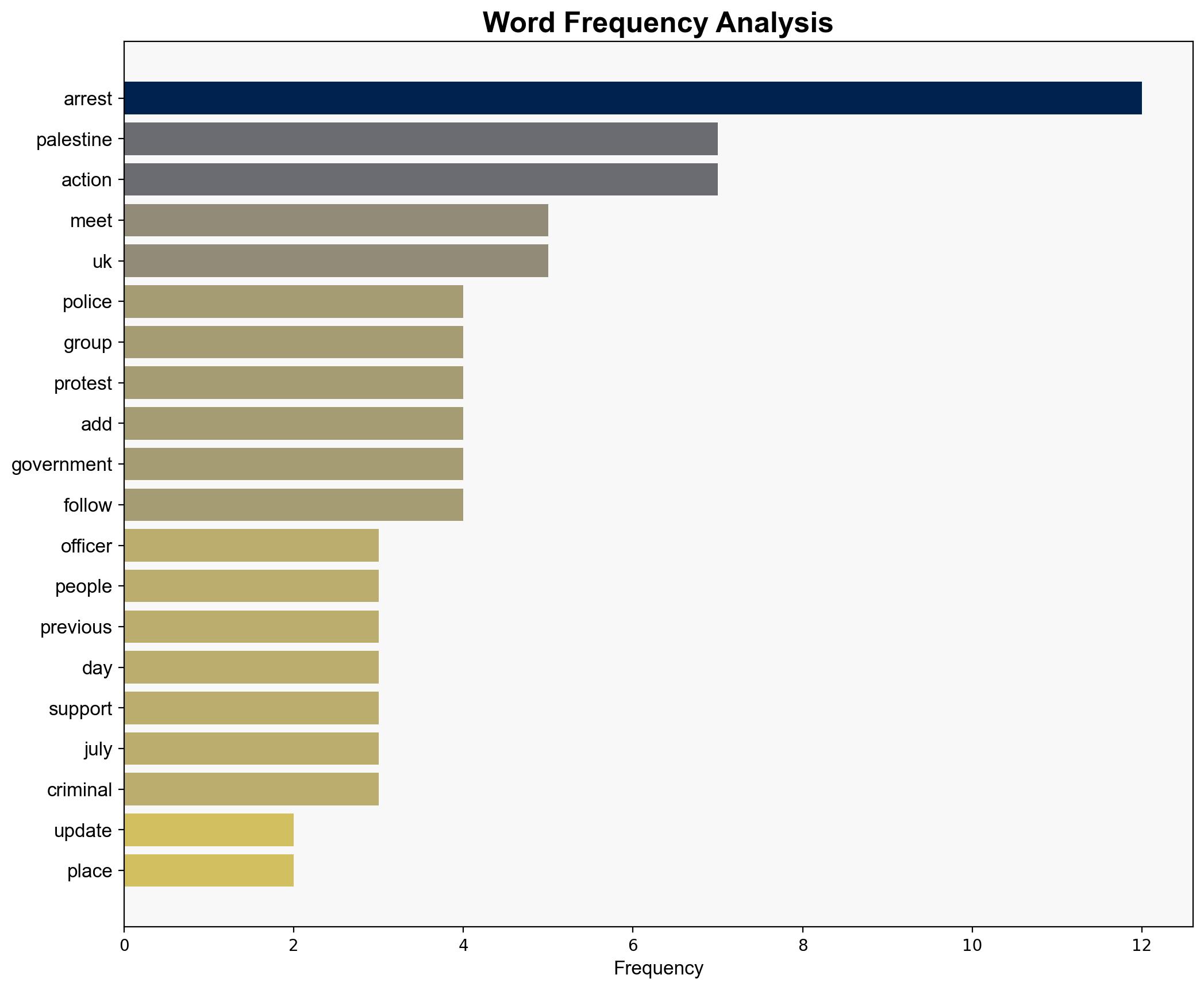Arrests reach 522 following Palestine protest in London – RTE
Published on: 2025-08-10
Intelligence Report: Arrests reach 522 following Palestine protest in London – RTE
1. BLUF (Bottom Line Up Front)
The most supported hypothesis is that the UK government’s proscription of Palestine Action is primarily a national security measure aimed at curbing potential threats and maintaining public order. This assessment is made with moderate confidence due to the presence of conflicting narratives and international criticism. The recommended action is to closely monitor the situation for further developments and potential international diplomatic repercussions.
2. Competing Hypotheses
1. **Hypothesis A**: The arrests and proscription of Palestine Action are primarily driven by genuine national security concerns, with the UK government acting to prevent violence and maintain public safety.
2. **Hypothesis B**: The arrests and proscription are politically motivated actions intended to suppress dissent and limit protests against UK foreign policy, particularly regarding its stance on Israel and Gaza.
Using the Analysis of Competing Hypotheses (ACH) 2.0, Hypothesis A is better supported by the evidence of the group’s involvement in activities causing significant damage and the government’s emphasis on public safety. However, Hypothesis B is supported by international criticism and concerns over free speech, suggesting political motivations.
3. Key Assumptions and Red Flags
– **Assumptions**: Hypothesis A assumes that the UK government’s actions are based solely on security assessments without political bias. Hypothesis B assumes that the government is using security laws to suppress political dissent.
– **Red Flags**: The lack of detailed evidence linking Palestine Action to direct violence raises questions about the proportionality of the response. The criticism from international organizations suggests potential overreach.
– **Blind Spots**: There is limited information on the specific threats posed by Palestine Action that justify its proscription.
4. Implications and Strategic Risks
The situation could lead to increased domestic unrest if perceived as an overreach, potentially escalating protests. Internationally, the UK may face diplomatic challenges and criticism, impacting its global standing on human rights issues. There is also a risk of radicalization if dissenting voices feel increasingly marginalized.
5. Recommendations and Outlook
- Conduct a transparent review of the evidence against Palestine Action to address international concerns and ensure proportionality in law enforcement responses.
- Engage in dialogue with civil society groups to mitigate tensions and prevent further escalation.
- Scenario Projections:
- **Best Case**: De-escalation through dialogue and transparency, restoring public trust.
- **Worst Case**: Escalation of protests and international condemnation, leading to domestic instability.
- **Most Likely**: Continued tension with periodic protests and sustained international scrutiny.
6. Key Individuals and Entities
– Yvette Cooper, UK Interior Minister
– Areeba Hamid, Greenpeace UK Executive Director
– Palestine Action
7. Thematic Tags
national security threats, counter-terrorism, civil liberties, international diplomacy





